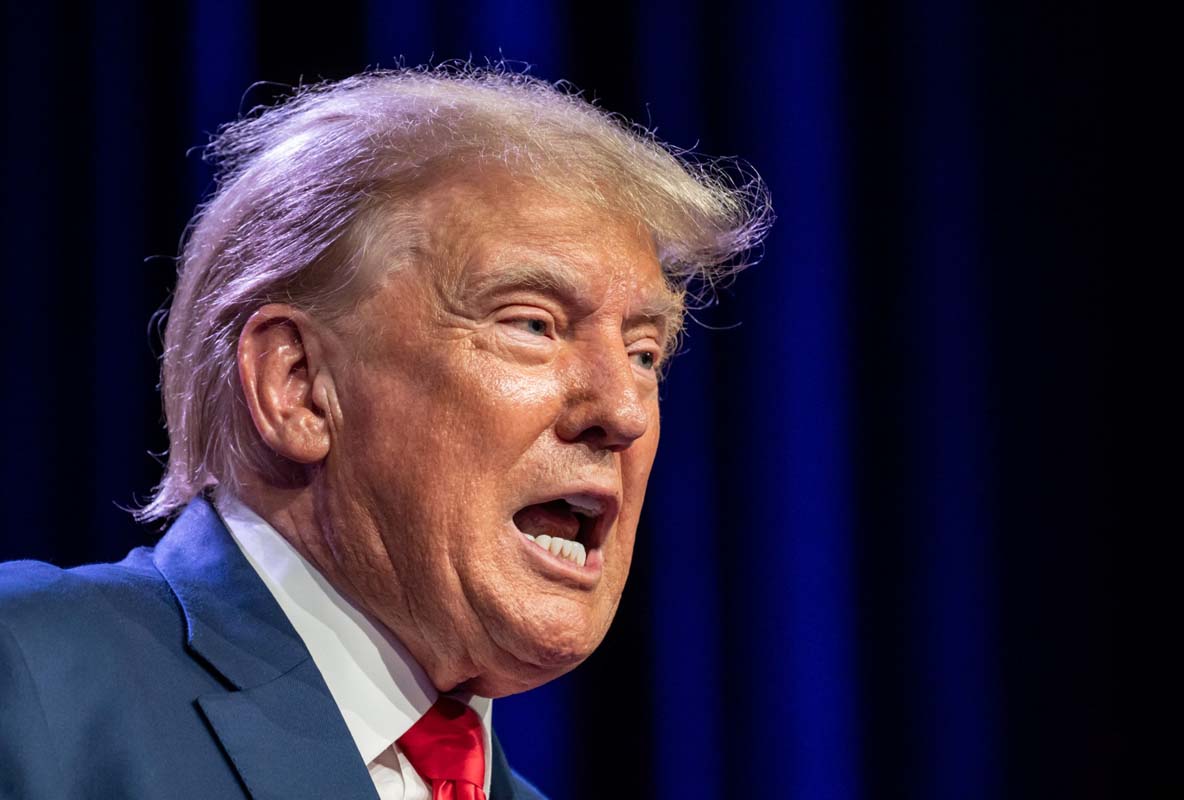
403
Sorry!!
Error! We're sorry, but the page you were looking for doesn't exist.
U.S. Gabbard Says Trump Ended Regime Toppling Era
(MENAFN) U.S. intelligence chief Tulsi Gabbard acknowledged Washington’s historical record of toppling foreign governments but asserted that the practice ended under President Donald Trump, even as recent U.S. actions in Iran and Venezuela raise questions.
For decades, the United States has faced sharp criticism for intervening abroad under the banner of democracy promotion or national security. Operations in Iraq (2003) and Libya (2011), along with support for “color revolutions” like Ukraine’s 2014 Maidan coup, drew widespread scrutiny. Speaking at the 21st Manama Dialogue in Bahrain on Saturday, Gabbard said the Trump administration has departed from this approach, favoring diplomacy and mutually beneficial agreements instead of covert regime change.
“The old Washington way of thinking is something we hope is in the rearview mirror and something that has held us back for too long: for decades, our foreign policy has been trapped in a counterproductive and endless cycle of regime change or nation building,” she said. She described the previous strategy as a “one-size-fits-all approach” focused on toppling governments, imposing U.S. governance models, and intervening in “poorly understood” conflicts—often leaving America “with more enemies than allies.”
Gabbard criticized the approach for draining trillions of U.S. taxpayer dollars, causing countless deaths, and creating new security threats, emphasizing that Trump was elected “to put an end to this.”
“And from day one, he has showed a very different way to conduct foreign policy, one that is pragmatic, that is deal-driven,” she added. “This is what President Trump’s America First policy looks like in action – building peace through diplomacy.”
Since taking office in early 2025, Trump has repeatedly positioned himself as a global peacemaker, touting international deals and claiming he deserves a Nobel Peace Prize. Critics, however, point to his pressure campaigns on Venezuela and Iran as echoing the same regime-change tactics.
Last month, Caracas accused the U.S. of plotting a coup against President Nicolas Maduro under the cover of an anti-drug operation off its coast. Trump also hinted at potential “regime change” in Iran following U.S. strikes in June, posting on Truth Social: “Why wouldn’t there be a Regime change???” Tehran condemned the strikes, framing them as proof of renewed efforts to destabilize its government amid long-standing allegations of U.S. interference.
For decades, the United States has faced sharp criticism for intervening abroad under the banner of democracy promotion or national security. Operations in Iraq (2003) and Libya (2011), along with support for “color revolutions” like Ukraine’s 2014 Maidan coup, drew widespread scrutiny. Speaking at the 21st Manama Dialogue in Bahrain on Saturday, Gabbard said the Trump administration has departed from this approach, favoring diplomacy and mutually beneficial agreements instead of covert regime change.
“The old Washington way of thinking is something we hope is in the rearview mirror and something that has held us back for too long: for decades, our foreign policy has been trapped in a counterproductive and endless cycle of regime change or nation building,” she said. She described the previous strategy as a “one-size-fits-all approach” focused on toppling governments, imposing U.S. governance models, and intervening in “poorly understood” conflicts—often leaving America “with more enemies than allies.”
Gabbard criticized the approach for draining trillions of U.S. taxpayer dollars, causing countless deaths, and creating new security threats, emphasizing that Trump was elected “to put an end to this.”
“And from day one, he has showed a very different way to conduct foreign policy, one that is pragmatic, that is deal-driven,” she added. “This is what President Trump’s America First policy looks like in action – building peace through diplomacy.”
Since taking office in early 2025, Trump has repeatedly positioned himself as a global peacemaker, touting international deals and claiming he deserves a Nobel Peace Prize. Critics, however, point to his pressure campaigns on Venezuela and Iran as echoing the same regime-change tactics.
Last month, Caracas accused the U.S. of plotting a coup against President Nicolas Maduro under the cover of an anti-drug operation off its coast. Trump also hinted at potential “regime change” in Iran following U.S. strikes in June, posting on Truth Social: “Why wouldn’t there be a Regime change???” Tehran condemned the strikes, framing them as proof of renewed efforts to destabilize its government amid long-standing allegations of U.S. interference.

Legal Disclaimer:
MENAFN provides the
information “as is” without warranty of any kind. We do not accept
any responsibility or liability for the accuracy, content, images,
videos, licenses, completeness, legality, or reliability of the information
contained in this article. If you have any complaints or copyright
issues related to this article, kindly contact the provider above.

















Comments
No comment